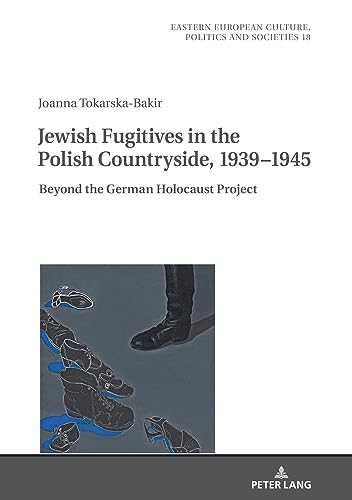
Jewish Fugitives in the Polish Countryside, 1939-1945
by Joanna Tokarska-Bakir
"Beyond the German Holocaust Project"
Popularity
0.21 / 5
* A book's popularity is determined by how it compares to all other books on this website.
Where to buy?
Buy from Amazon* If you buy this book through the link above, we may receive a small commission at no extra cost to you.
Jewish Fugitives in the Polish Countryside, 1939-1945 by Joanna Tokarska-Bakir
Details
War:
World War II
Perspective:
Civilian
True Story:
Yes
Biography:
No
Region:
Europe
Page Count:
298
Published Date:
2021
ISBN13:
9783631849279
Description
Main Themes and Topics
Jewish Fugitives in the Polish Countryside, 1939-1945 by Joanna Tokarska-Bakir offers a compelling exploration of the Jewish experience in rural Poland during the Holocaust. The book investigates the dire circumstances faced by Jewish individuals and families who sought refuge in the Polish countryside, away from the systematic extermination efforts implemented by Nazi Germany. Tokarska-Bakir delves into the complex interactions between Jewish fugitives and their non-Jewish Polish neighbors, posing challenging questions about the societal factors contributing to anti-Jewish violence.
Central to the narrative are recurring questions regarding the motivations behind violent actions carried out by Polish inhabitants independently of German directives. The book examines whether specific social relationships and roles, such as those played by the peasantry, social elites, and the Catholic Church, were more inclined to participate in or resist perpetrating anti-Semitic violence. By connecting the Holocaust-era atrocities to broader historical and social contexts, Tokarska-Bakir provides a nuanced analysis of the interplay between local and genocidal violence.
Writing Style and Tone
Joanna Tokarska-Bakir's writing style in Jewish Fugitives in the Polish Countryside, 1939-1945 is both scholarly and accessible. Her meticulous research is evident throughout the book, lending an authoritative voice to her analysis. The tone is appropriately somber, reflecting the gravity of the subject matter, yet it remains empathetic towards the individuals whose harrowing stories are recounted. Tokarska-Bakir balances detailed historical inquiry with poignant narratives, resulting in a deeply engaging and thought-provoking read.
Brief Summary
The book provides an in-depth investigation into the survival challenges faced by Jewish Poles hiding in rural areas of Poland during World War II. Utilizing research conducted at Poland's Institute of National Remembrance and integrating testimonies from Jewish survivors dispersed globally, Tokarska-Bakir paints a vivid picture of the fraught relationships and brutal realities that defined this period. She seeks to uncover the social dynamics and influences behind anti-Jewish violence perpetrated by Polish neighbors, independent of Nazi coercion, and explores how these actions fit into the broader context of Holocaust atrocities and local history.









